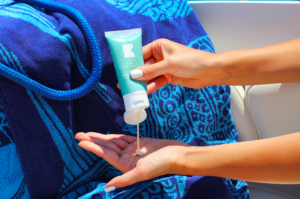News & Blogs
Stay up to date on the latest news from Fetter Health Care Network by viewing our updates below.
News & Blogs
Stay up to date on the latest news from Fetter Health Care Network by viewing our updates below.
Latest News

June 3, 2022
Fetter extends care to Adams Run, SC with the James E. Clyburn Wiltown Community Center partnership
Fetter Health Care Network (Fetter) announced its partnership with the James E. Clyburn Wiltown Community Center to extend health care services to the Adams Run, SC community. Fetter will begin offering a variety of health care services to community members at the center on the first Monday of every month beginning on Monday, June 6, 2022. Fetter’s medical mobile unit will be on site from 9 a.m. to 2 p.m.
Walk-in and scheduled visits are available for a variety of services, including adult and pediatric primary care, women’s health, behavioral health, pharmacy, homeless programs, migrant outreach and case management. Patients can also qualify for Fetter’s Sliding Fee Discount Program. Fetter services are available for all community members and individuals are encouraged to bring their photo ID, insurance card (if available, not required), proof of income and household size.
“Fetter is proud to partner with the James E. Clyburn Wiltown Community Center in bringing these essential services to our Adams Run neighbors,” said Aretha Powers, DHA, CEO of Fetter. “Together, we are continuing our mission to provide quality, accessible care to all individuals throughout the Lowcountry.”
The executive board of the community center states that this partnership is “an example of people working together for a better community.”
For more information on Fetter’s services available to the Adams Run community, or to schedule an appointment, visit FetterHealthCare.org or call 843-722-4112.

May 17, 2022
Skin Cancer Awareness Month: Prevention and Education
May means more than the return of the Lowcountry summer sun. It’s also Skin Cancer Awareness Month! Each year, medical professionals and patients alike come together to spread awareness that can help save lives from this deadly disease that affects one in five Americans throughout their lifetime. At Fetter, our team is committed to providing you with reliable, high-quality care that extends beyond our offices.
With beach days and cookouts well underway, we encourage you to use this blog as a sun safety guide. Protect yourself today, tomorrow and every day to keep yourself and your loved ones safe and smiling in the Palmetto State sunshine.
What is skin cancer?
Skin cancer occurs when the body’s unable to control the production of irregular skin cells in the skin’s outermost layer. Due to damaged DNA, these irregular cells continue to multiply, causing cancerous tumors to form. This type of cancer is most commonly caused by extended and unprotected exposure to harmful ultraviolet (UV) rays and affects all skin types – regardless of race.
There are several forms of skin cancer, including basal and squamous cell skin cancer, melanoma, Merkel cell skin cancer, Lymphoma and Kaposi sarcoma. While these diseases can affect everyone, certain characteristics may put you at increased risk, according to the Center for Disease Control and Prevention (CDC), such as a lighter complexion, skin that burns or freckles easily, a family history of skin cancer and more.
Signs of skin cancer may include:
- Unusual discolorations of the skin
- Irregularly shaped or spreading skin spots
- New spots or moles on the skin
- Sores that do not heal
- Red or swelling moles
The American Cancer Society offers a full list of signs with example images in their guide, “How to Spot Skin Cancer.”
How can I protect myself from skin cancer?
Skin cancer is dangerous, but it’s also highly preventable! While regularly scheduled screenings and doctor’s office visits are your best strategy for early detection, there are many simple steps you can take right now to help protect yourself and your loved ones from this deadly disease.
- Apply sunscreen when heading outdoors. Sunscreen is your most important weapon in the fight against skin cancer. Always use a broad-spectrum (UVA/UVB) sunscreen. Those of SPF +15 are recommended for daily use, or SPF +30 with water resistance for extended periods outdoors or physical activity, especially after swimming or sweating. Reapply sunscreen every two hours in the second scenario.
- Cover unprotected, exposed skin. If you are heading out without sunscreen, you should wear clothing that will conceal any unprotected skin from the sun’s harmful UV rays. Darker, tightly woven materials are better here than see-through clothing. A large brimmed hat and UV-blocking sunglasses can also provide extra defense to your eye, head, face and shoulders.
- Find shade when possible. The sun’s rays are at their strongest between the hours of 10 a.m. to 4 p.m. During this time, try finding yourself a nice shady spot to escape and relax. This can be beneath the comfortable shade of a big tree or under your beach umbrella.
- Avoid indoor tanning. Tanning in and of itself is not necessarily a sign of healthy skin. In fact, it’s evidence of skin damage! Avoid any forms of indoor tanning, such as tanning beds and sun lamps, as these methods expose users to high UV levels, which can cause skin cancer, cataracts and eye cancer.
- Perform monthly self-exams. While your medical provider will be able to detect signs of cancer during your annual screenings, monthly self-exams act as an extra line of defense for your skin health. No one knows your body better than you! If you notice unusual skin features like those above, reach out to your doctor and schedule an appointment.
Fetter is here in the fight against skin cancer!
If you believe you’ve detected signs of skin cancer, Fetter Health Care Network is here for you! Our reliable medical team can provide assistance and referrals with a catalog of dermatology professionals in our health care network. Contact us today to schedule an appointment with our team, or visit our site to learn more about our full list of services.

April 29, 2022
Good Cholesterol Levels and How To Achieve Them
Are you watching your cholesterol? According to the Center for Disease Control and Prevention (CDC), about 93 million Americans over the age of 20 live with high cholesterol. That’s almost 40 percent of the country’s population who are at risk for heart disease and stroke. However, while high cholesterol is common for many U.S. adults, it is also controllable and preventable with the right knowledge, lifestyle choices and screenings.
What are healthy cholesterol levels?
Cholesterol is a waxy substance produced by the liver and found in cells. When present in the right amount, cholesterol is used to aid in producing sex hormones and bile and serves as a building block for human tissues. While already naturally produced by the liver, foods high in trans fats and saturation can cause cholesterol overproduction, resulting in clogged arteries and life-threatening complications.
Your total cholesterol number is determined by high-density lipoproteins (HDL), low-density lipoproteins (LDL) and triglycerides. HDLs, or “good cholesterol,” help protect you from heart disease. LDLs, or “bad cholesterol,” block blood vessels and increase your risk. Triglycerides are fat that acts as the basis for cholesterol.
When analyzing your cholesterol levels, the higher the HDL and lower the LDL, the better.
According to the Journal of the American College of Cardiology, the following results are considered ideal for someone with “good” cholesterol levels:
- HDL Cholesterol: 60mg/dL or higher is preferred. 40mg/dL is passable for men. 50 mg/dL is passable for women.
- LDL Cholesterol: Less than 100mg/dL is ideal. Less than 70mg/dL if the individual has coronary heart disease, blood vessel disease or diabetes.
- Triglycerides: Less than 100mg/dL is ideal. Less than 149mg/dL is passable.
- Total Cholesterol: Less than 200mg/dL is the goal, but the lower this number, the better.
Adults 20 or older should have their cholesterol tested every four to six years, as advised by the American Heart Association. Those with a family history of high cholesterol should be tested more regularly. Your physician can easily assist in testing cholesterol levels through a blood test called a lipoprotein panel.
Please note: Patients receiving this panel must fast for nine to 12 hours prior.
What can I do to lower my cholesterol levels?
Regardless if high cholesterol is hereditary or the result of unhealthy habits, there are steps you can begin to take that will help reduce your levels and risk of adverse side effects.
Eat a heart-healthy diet.
A healthy diet makes for a happy body. Those looking to lower cholesterol should begin by cutting back on fatty and processed foods, like fast food, butter and sweets. While tasty, these foods are high in trans and saturated fats that cause LDL levels to rise. Instead, try substituting these unhealthy options for plant-based foods like fruits and vegetables, as well as whole grains, low-fat dairy, chicken and more.
Get active.
Exercise is a great way to improve cholesterol levels and your overall health! Getting active can increase good cholesterol, lower bad cholesterol and help you lose weight, which is also shown to reduce LDL levels. Exercise can also positively impact your mental health, helping to reduce stress, which studies have shown to negatively affect cholesterol.
Take your medicine.
Along with changes to your lifestyle, your doctor may also prescribe medications to help reduce cholesterol levels. These medications commonly include statins (drugs that reduce the liver’s LDL production and aid it in removing already present LDL), Niacin (a B vitamin that helps regulate LDL, HDL and triglyceride levels) and more. Taking this medicine consistently is key to its effectiveness.
Fetter is here for you!
If you have a family history of high cholesterol or are looking to understand your current health, Fetter Health Care Network is here for you! Our team of reliable health care professionals can conduct the appropriate testing and help you create a treatment plan that’s best for you. Contact us today to schedule an appointment at your nearest Fetter location, and visit us online to learn more about our services.
